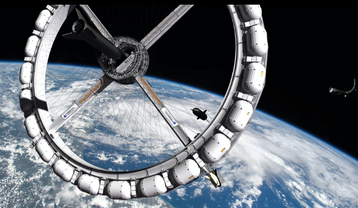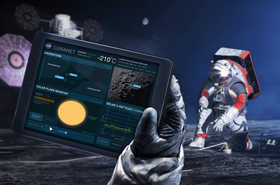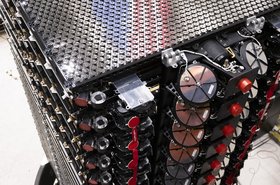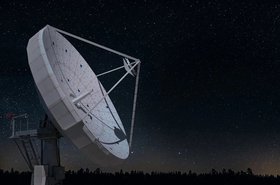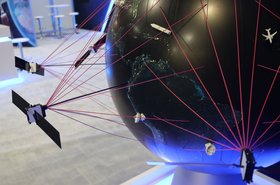Satellite cloud provider LEOcloud is partnering with Orbital Assembly to enable public cloud Edge computing services hosted on the proposed Gravity Ring and Pioneer space stations.
Both planned private stations are set to be developed by Orbital Assembly - but it is not clear if the company can actually deliver on its lofty ambitions.
Under the partnership, researchers and commercial entities on board Orbital Assembly’s facilities will be able to run their services or application workloads locally in a hybrid cloud environment such as Red Hat OpenShift, at the same time as working with those on Earth.
“Orbital Assembly’s Gravity Ring will be a transformational research and development environment for innovation,” Dennis R. Gatens, CEO and president of LEOcloud, said. “As humans expand their presence in LEO and establish a presence beyond LEO, the importance of Edge computing grows exponentially.”
Back in 2012, pilot John Blincow created The Gateway Foundation with the claim of building a giant spaceport in a decade, charging people a membership fee to help support the claimed work. Despite the name, the foundation is not a non-profit, but is instead a sole proprietorship - so Blincow receives all the money from subscribers.
At some point after the launch of the foundation (on its site it says 2012, in interviews 2018, and in investor decks 2019), the same team founded Orbital Assembly with the purported aim of building what the foundation envisioned.
In addition to several massive space stations, the company also claims it will build a number of highly specialized space drones to service the orbiting infrastructure. It hoped to fund a CGI video of what the drones would look like through a Kickstarter - but failed to receive the necessary funds.
In another effort to raise money, Orbital Assembly turned to online investment platform Netcapital to sell shares to retail investors, and has brought in $326,790. A quarter-million of that has been reserved for executive compensation, and another $49,000 for intermediary fees, leaving $31,790. The company values itself at $40.2 million.
Blincow previously said that it would cost $60 billion to operate its first space station by 2025. That's significantly less than the much smaller International Space Station's $160bn price tag - although it's not clear how the company expects to raise that money. In its investor deck, it adds that it plans to be cash positive by 2025.
In one video explaining the spaceport (although different videos show varying designs and specs), the station is said to have a minimum station mass of 5,453,062,500kg - which YouTuber Common Sense Skeptic notes would mean transport to space costs of $100 trillion. This does not include cost of materials or assembly.
In its investor pitch, a required independent auditors' report notes: "The Company has incurred losses from inception and has not yet commenced its principal operations and has indicated that substantial doubt exists about the Company’s ability to continue as a going concern."
In 2019, Orbital Assembly had assets worth $497.

